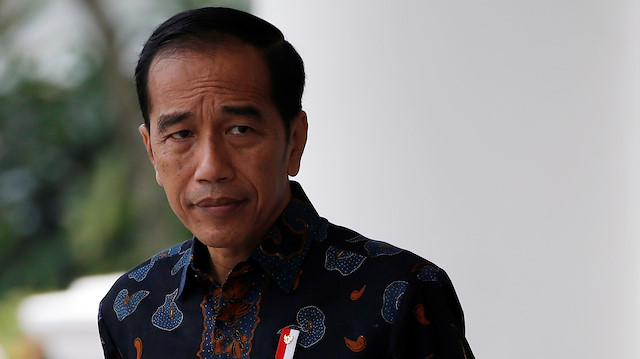
Indonesian activists said on Wednesday that proposed changes to the constitution could set back democracy and end direct presidential votes, while President Joko Widodo himself urged parliament to seek the views of all sides before pressing ahead with the reforms.
Parties sworn in this month have proposed changing the constitution to reinstate the Broad Guidelines of State Policy - a set of long-term national development goals that could bring Widodo's executive branch under its power.
Before Indonesia's return to democracy in 1998, the People's Consultative Assembly or MPR, which was stacked with army officials and supporters of late dictator Suharto who ruled for 32 years, had the power to pick the president under the Broad Guidelines.
The constitution has since been amended four times to separate legislative and executive powers, decentralise the government, directly elect presidents and limit leaders to two terms.
One of the main proponents of the latest amendment is Widodo’s own party, the Indonesian Democratic Party for Struggle (PDI-P), while a range of others including Gerindra and NasDem (National Democratic) party have also supported the plan.
But legal experts and activists are worried.
"The reinstatement of (the Broad Guidelines) could roll back everything related to reform and return the political landscape back to the past," said Asfinawati, head of the Legal Aid Institute, who goes by one name.
Arya Fernandes, a researcher at the Center for Strategic and International Studies, said restoring the Guidelines was unnecessary.
"It would impact our constitutional system: the president becomes weaker, the parliament becomes stronger.”
On the other hand, Eva Kusuma Sundari, a former MP from PDI-P who has been in talks with MPs on the issue since 2009, said the amendment was intended to bolster the nation to tackle issues of radicalism and economic inequality.
"We want guidelines that are long term, have a wide perspective, and they are formulated by all: legislative, executive, NGOs."
According to Sundari, the amendment would not cover articles related to elections or impeachment.
But in a hint that direct presidential elections could be on the chopping block, MPR speaker Bambang Soesatyo told media in August that such votes were "complicated and too expensive."
Widodo himself appeared keen to avoid taking sides on the issue.
"Let's give a chance to the MPR to work, to do research and to field all possible input," he said in a statement.
"The most important thing is that it requires in-depth studies. It needs to accommodate proposals from all figures, academics, the community," he Widodo after a meeting with Soesatyo.














